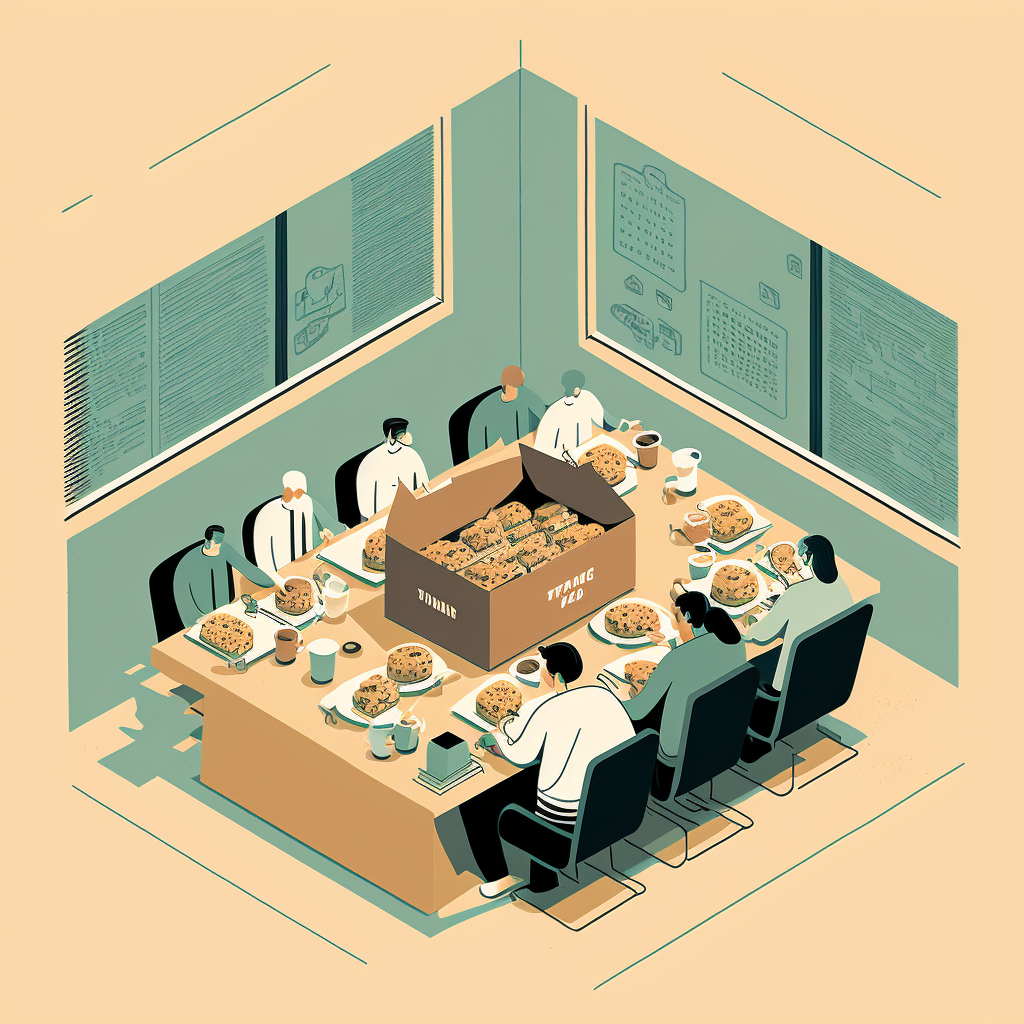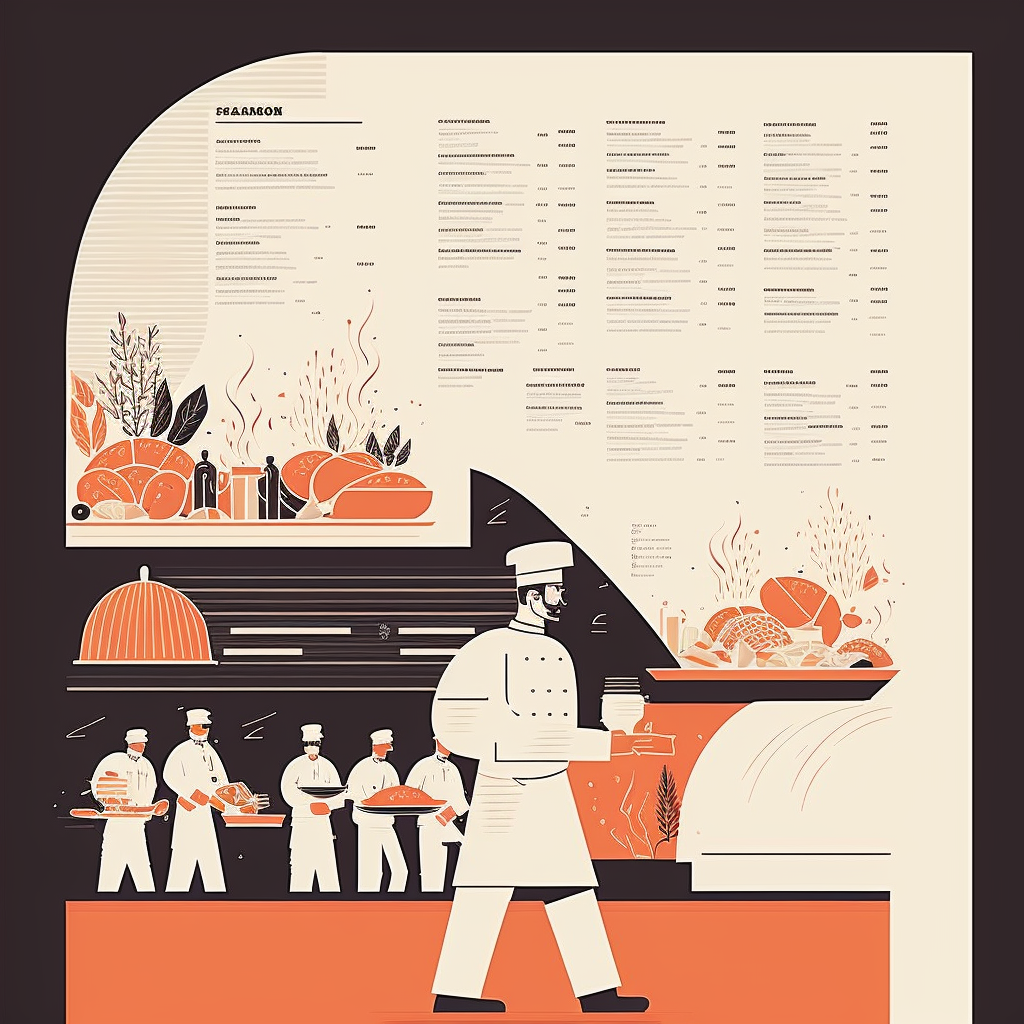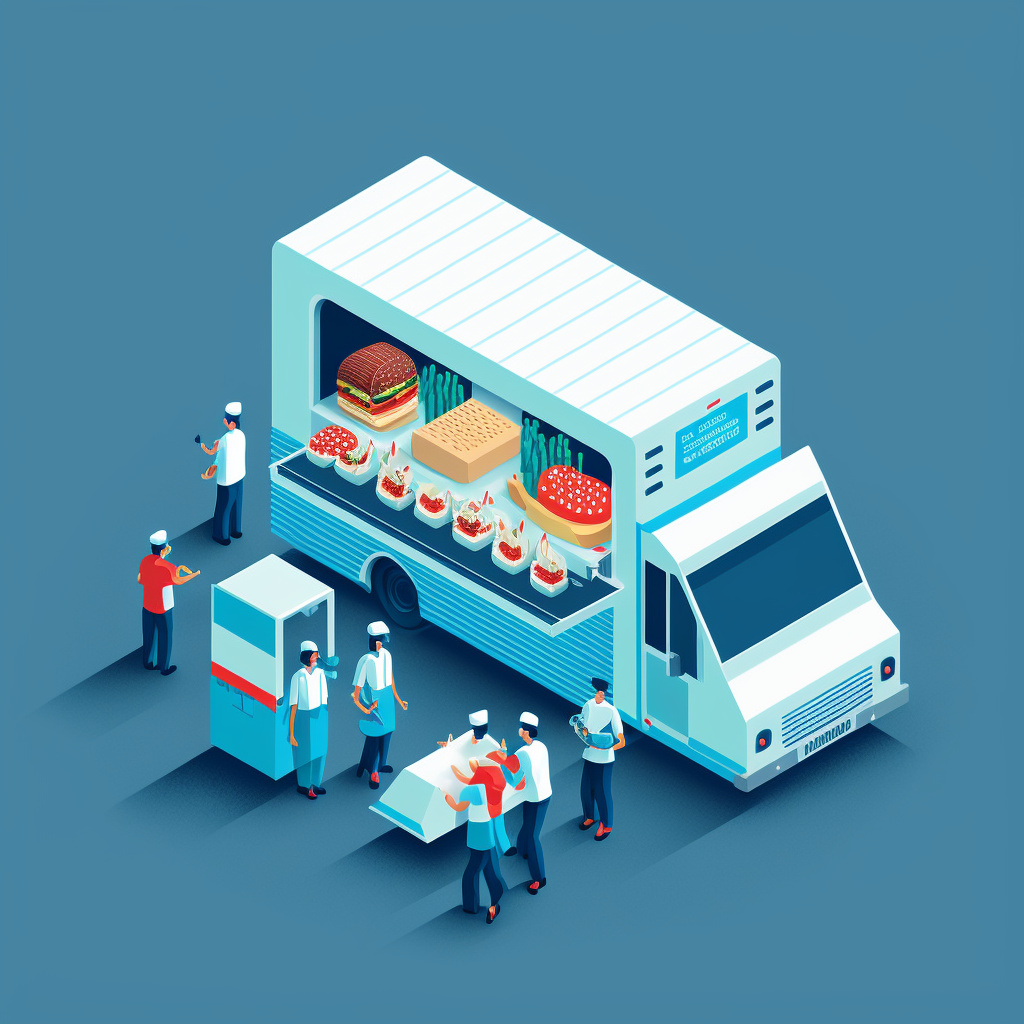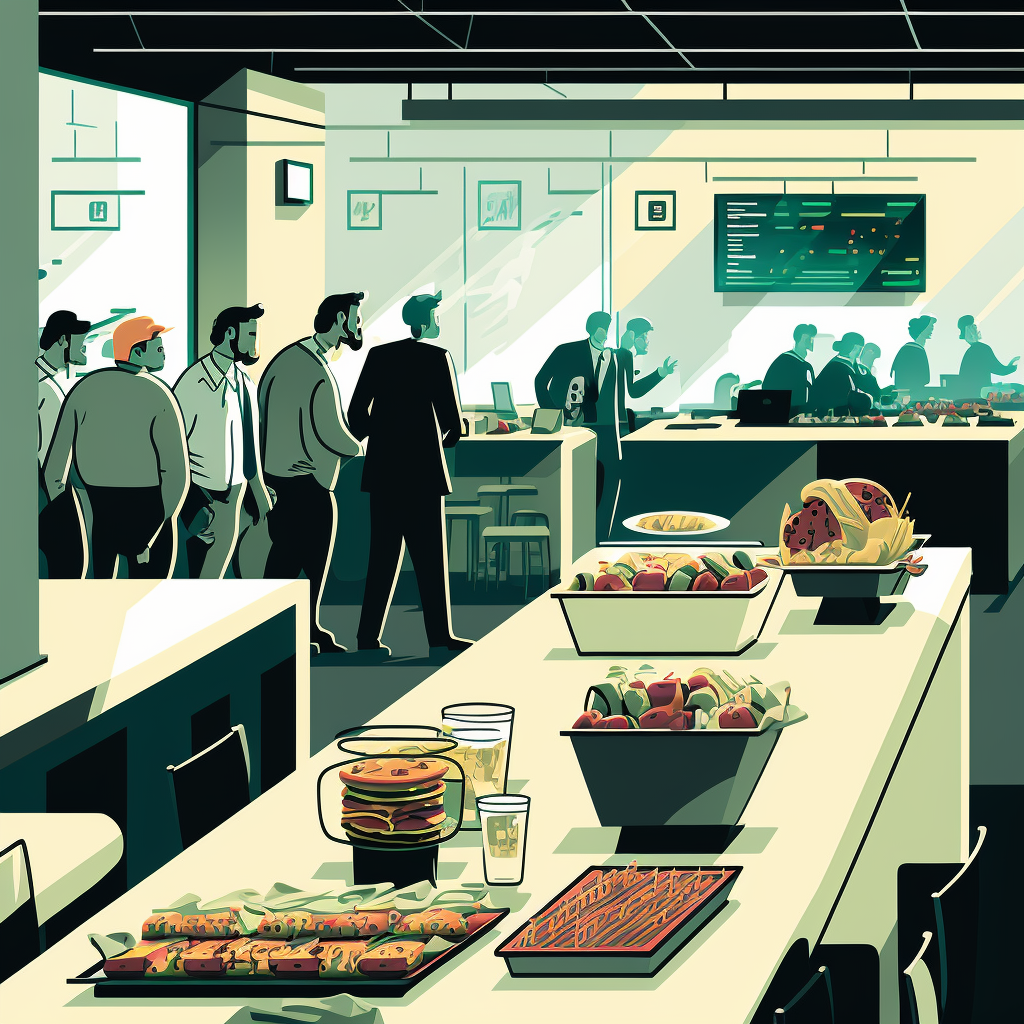Corporate catering can grow your business. Giving your employees, clients, and guests tasty and healthy meals can improve morale, relationships, and impressions.
Whether you’re planning a company-wide lunch, client meeting, or special event, corporate catering is a great way to ensure that everyone is well-fed and happy.
However, as a business owner or event planner, you probably have questions about how corporate catering works. For instance:
- Why do you need corporate catering?
- How can you save money on corporate catering?
- Which corporate catering service providers should I hire?
This guide will help you understand corporate catering and make informed decisions to keep your costs low and your events running smoothly.
8 benefits of corporate catering for your company
Corporate catering makes it easy for you to feed your workers, impress clients in meetings, and enhance special occasions such as hosting a workshop to impart new skills.
This encourages workplace unity and mealtime socialisation, especially when you accommodate different dietary needs and preferences (e.g., vegetarian, halal, gluten-free, etc.).
The main advantages of corporate catering are:
- Cost savings: Reduce employees’ need to eat out and bring their own food, saving your company money over time.
- Convenience: Feed your employees and guests without worrying about meal preparation and cleanup.
- Increase productivity: Boost your team’s energy and mood, leading to higher productivity and motivation.
- Nutritional support: Improve the health of your employees and reduce the risk of chronic diseases through healthy and nutritious meal options.
- Improve health: Reduce the risk of chronic diseases like heart disease, diabetes, and obesity through a balanced diet, which improves overall health and lowers employee sick days.
- Showcase the company’s brand: Highlight your brand values through your corporate catering meal choices, packaging, and locations. For instance, a sustainable company may use eco-friendly catering at a local out-of-town farm, as opposed to a costly restaurant meal downtown.
- Impress clients: Build trust and loyalty through professional and attentive events, which can lead to long-term business relationships.
- Enhance event experience: Make clients more likely to attend future events and recommend your company.

6 key steps in the corporate catering process
High-quality, on-time corporate catering requires 6 key steps, which your catering company will work closely with you to follow.
A good corporate catering company should offer various cuisines, dietary options, and event types, from catering for small meetings to ongoing services for large corporate events.
The six key steps are:
- Caterer sourcing
- Menu planning
- Food preparation
- Delivery and setup
- Staff service
- Follow-up
Let’s dig a little bit deeper into the process.
#1 Caterer sourcing
Finding a caterer that meets your specific needs takes time. You can find the best caterer for your corporate event by comparing prices, services, and reputation.
Some caterers may be fully booked for your desired event date, which can throw a spanner in the works. You can solve this problem by asking other business owners or event planners in your network for recommendations.
Use search engines or online directories to find local corporate caterers. Look for reviews and ratings (e.g., on Facebook) to get an idea of the quality of their service.
Once you’ve compiled a shortlist, ask the following questions to better understand if their catering services are a good fit for your needs:
- What services are offered?
- Can they accommodate allergies and dietary restrictions?
- Do they have event or industry catering experience?
- Can they provide client testimonials?
- How much do they charge and what’s included?
- What is their cancellation/change policy?
- How are setup and cleanup handled?
- Are they licensed and insured?
- What’s their payment policy?
By asking these questions and researching their services and reputation, you can find a corporate caterer that meets your needs and provides high-quality food and service for your event.

#2 Menu planning
You and your caterer will work together to plan the menu for a corporate catering job.
The caterer will discuss the number of guests, type of event, and any dietary restrictions or allergies with you. Based on your needs, the caterer will create a menu that aligns with those needs. This menu can include appetizers, entrees, and desserts.
The caterer will review the menu with you and give a detailed cost breakdown that includes food, labor, and other costs. Caterers require a deposit or full payment before creating your menu.
Menus for corporate catering
Some of the most popular corporate catering menus are:
Breakfast menu:
Breakfast usually includes pastries, yogurt, fruit, and juice. This menu is often used for early morning meetings and events because it has something for everyone.
Boxed lunches:
These ready-to-eat meals usually include a sandwich, salad, or wrap, a side dish, and a drink. This type of menu is often used for events with limited seating or moving guests.
Buffet-style
A buffet menu offers various dishes for guests to choose from. For events where guests will be socializing and mingling, this type of menu lets guests choose their food and portion sizes.
Sit-down/plated:
Guests are served a multi-course meal at their seats with a sit-down menu. This menu is used for formal evening events like galas and business meetings. It provides a more elegant and professional atmosphere.
Family-style service:
Family-style menus are served on large platters, and guests serve themselves. This menu allows guests to share food and creates a more casual atmosphere at events where people are mingling, such as casual team-building events e.g sports gameday
Food truck:
A food truck is a mobile kitchen that serves food on the street, making it an interactive and unique option for outdoor events like festivals, fairs, and corporate events. It’s a fun and interactive way to feed guests and offers a variety of dishes.
Action stations:
Action stations are interactive food stations where guests can watch and make their own food. For events where guests will be socializing and mingling, this type of menu allows guests to see the food being prepared and customize their own dish.
Cocktail reception:
On the menu for a cocktail reception, there are both hot and cold appetizers, drinks, and sweets. This menu allows guests to sample various different dishes and drinks and is a great option for more casual events such as annual music award functions.
Hors d’oeuvres:
Hors d’oeuvres are small appetizers served before a meal. This menu lets people try a lot of different dishes and is great for formal events, like corporate retreats or executive golf days.
Each style presents and serves food differently and has its own pros and cons. A catering company can advise you on the best menu for your event, guests, and budget.

#3 Food preparation
After finalizing the menu, the catering company buys, cooks, and delivers the food.
Commercial kitchens are used by many catering companies to prepare and cook food for events. Some clients have food preparation preferences. If the event is at a location without a kitchen, the client may request that the food be prepared off-site and delivered.
#4 Delivery and setup
Logistical considerations include providing the caterer with the event site, power, water, and any equipment they may need.
Food delivery may include using insulated bags or containers to keep the food at the appropriate temperature.

#5 Staff service
Depending on the type of event and your needs, the catering company may provide extra staff to serve food and help with setup and cleanup.
This includes servers, bartenders, and any other staff needed to run the event smoothly:
- Servers: They refill drinks, serve food, and clear plates. They are there to take care of guests’ needs and comfort.
- Bartenders: They prepare and serve drinks, monitor alcohol consumption, and ensure guests aren’t overserved.
- Setup and cleanup staff: They set up the event, including tables, chairs, linens, and decorations. They also clean up after the event, including clearing tables, washing dishes, and removing decorations.
- Event coordinators: They communicate with you, manage the timeline, and ensure everything runs smoothly.
Service staff comes at an extra price because it is an additional service provided by the catering company, beyond the food and drinks. Their time is billed by the company. Staff time, labor, and other expenses like uniforms and insurance make up this cost.
#6 Follow-up
After the event, the catering company will check in with you to make sure you are satisfied.
This includes gathering feedback, addressing concerns, and suggesting future events:
- Feedback: The catering company will ask you for feedback on the service and food for future improvement. Catering companies may use digital or paper surveys to get client feedback on service, food, and staff.
- Addressing concerns: Any concerns that you have may be addressed to build trust and confidence in the company’s services.
4 ways to save more money with corporate catering
Catering companies must cover overhead, provide high-quality service and food, and make a profit, so their prices reflect these costs.
This means they may not always be able to offer discounts, but they can offer special deals or packages to help you save money.
Here are four ways to save money with corporate catering:
- Plan ahead to negotiate: Take advantage of early booking discounts and negotiate better catering prices.
- Choose the right menu: Select an event-appropriate menu to cut costs. For example, buffet-style service can be more cost-effective than a sit-down meal for larger events.
- Avoid extras: Avoid expensive linens, decorations, and table settings.
- Use leftovers wisely: Use leftovers for lunch the next day or send them home with employees.
Let’s discuss these cost-saving measures in more detail.
#1 Negotiate with the caterer
Many caterers will work with clients to create a budget-friendly menu.
This could mean fewer courses, cheaper ingredients, or cheaper equipment rentals. By working with the caterer, companies can create a menu that is both affordable and high-quality.
Negotiating with a corporate caterer requires a delicate balance between getting the best deal and not devaluing them.
Here are some ways to negotiate with a corporate caterer without undermining their value:
- Be upfront about your budget: This will help the caterer understand your needs and create a quality, budget-friendly menu.
- Be open to suggestions: Caterers are experts in their field and may have ideas for a high-quality, budget-friendly menu. Consider their suggestions.
- Be flexible with the menu: You can add or remove courses or substitute ingredients. This can lower costs without compromising quality.
- Be respectful of their time and resources: Caterers must pay for ingredients, equipment, and staff, so be considerate. Avoid unreasonable requests or lowball offers.
- Communicate your expectations clearly: Whether it’s food, service, or delivery times, state your expectations clearly. This will help the caterer understand and meet your needs.
- Look for a caterer that aligns with your values: Find a caterer that aligns with your company’s values, such as using organic ingredients, or being environmentally friendly. This saves money and promotes company values.
#2 Use in-house event facilities
You can use a large conference room or breakroom for your event if your company has one. In-house facilities give you more event control, as you can choose the space layout, lighting, and temperature to create the perfect event atmosphere.
It’s easier to schedule your event. You can start and end the event at any time, which is helpful when accommodating a large number of guests or last-minute changes.
Since it eliminates the need to rent a venue, corporate catering in-house can save you money.

#3 Use virtual catering
Virtual catering lets you order food online for office delivery without a caterer. Restaurants, food trucks, and other food providers with online ordering systems offer this service.
Virtual catering saves you money and gives you more flexible menu and delivery options.
You can order lunches, snacks, and drinks online and have them delivered to your office. Orders can be placed for specific times and people. The food is usually delivered in disposable containers, and you can set up your own food stations.
Virtual catering is great for companies with remote workers or employees in different locations because everyone can order food from the same provider and have it delivered.
#4 Reduce food waste
Minimizing food waste saves your company money by reducing food purchases. This can include encouraging employees to take only what they need and to plan the menu according to guest numbers and dietary restrictions.
Being mindful of food waste reduces the amount of food that ends up in landfills, saving your company money and reducing its environmental impact.

The staggering importance of office nutrition
Many companies don’t value investing in nutrition and breaks because they don’t understand their importance.
Due to long work hours, tight deadlines, and a lack of time to prepare healthy meals, employees often neglect their health and nutrition in today’s fast-paced corporate environment. Diabetes, heart disease, and obesity can result from this.
To fix this, corporate caterers serve healthy meals. By providing fresh fruits and vegetables, lean proteins, and whole grains, companies can encourage healthy eating habits in their employees.
Companies can also reduce obesity, diabetes, and other health issues by offering lower-fat, sugar, and sodium meals.
Eating breaks improve productivity. When given a break to refuel, employees can return to work refreshed and more focused.
Due to long working hours, stress, lack of physical activity, poor nutrition, lack of social support, and constant technology use, corporate irritability, and anxiety are at an all-time high.
Acknowledging the impact of these factors on employee well-being helps you take steps to mitigate them. Regular meals can regulate blood sugar and prevent fatigue, irritability, and anxiety.
Menus with calorie counts and ingredient lists can help corporate caterers educate employees about healthy eating. This can help employees understand the importance of eating a balanced diet at work and make informed food choices.
Invest in your company’s health and it will reward you.
In health and business,
Chef Lee
If you are looking for expert corporate catering services, contact us today to discuss your event needs.
Special thanks to Dr. Shehu for helping me edit this piece.